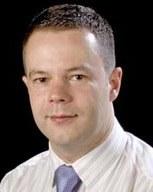The Macromolecular Materials Laboratory either owns or has access to top-of-the-line equipment for characterising a wide range of physical (mechanical, thermal, electrical, structural) properties of nanomaterials.
The following are a few examples:
Favimat fibre tester
The Textechno Favimat is an industrial device for testing the mechanical properties of individual fibres, suitable for fibres with very small diameters. It uses a vibroscopic method to determine the fibre’s linear density and a very sensitive load cell to measure strength and stiffness. Using specific properties (properties divided by density) allows us to compare our direct-spun CNT and nanocomposite-fibres against commercially-available high-performance fibres.
Raman spectroscopy
The Raman effect is a scattering phenomenon that provides chemical and structural information: the wavelength shifts between incident and inelastically scattered photons correspond to the energies of different molecular vibration modes. Raman spectroscopy can be applied in a wide range of materials – from pharmaceuticals to semiconductors – and is one of the most useful techniques for characterising carbon nanotubes (providing information about diameter, chirality, and defects), grapheme, and other, carbon-based, nanomaterials. The MML proudly owns a Bruker Senterra, providing measurements with different laser wavelengths and the possibility of automated 3D mapping (Raman intensity over 2D sample area).
Polymer characterisation laboratory
We have access to the department’s polymer characterisation laboratory which includes, amongst others, equipment for differential scanning calorimetry (DSC), thermo-gravimetric analysis (TGA), dynamic mechanical analysis (DMA), evolved gas analysis (EGA), and infrared spectroscopy (FT-IR). We use these techniques to study several properties of our nanostructured composite materials. A full list of equipment is available here.
X-ray scattering techniques
Having access to the departmental X-ray facilities we’re able to study the structure of our nanomaterials (powders, fibres, or films) and composites reinforced with them. For us, one of the most useful pieces equipment is the Bruker Nanostar Gen7, capable of collecting both wide- and small-angle patterns (WAXS and SAXS) which probe the structure of our CNT fibres at the inter- and intrabundle levels, respectively; the device has also been used to study the effects of solvents on collagen and other macromolecules. For a full list of equipment click here.
Electron microscopy
The group has access to the multiple electron microscopy facilities of the department, including scanning electron microscopes (SEMs) equipped with a focused ion beam (FIB) and energy-dispersive X-ray spectroscopy (EDS), and transmission electron microscopes (TEMs). SEM is one of the basic methods to get a first impression of the structure of a sample, while FIB provides the possibility to cut cross-sections and look – e.g. inside our spun CNT fibres – or to prepare thin samples for TEM. In the case of carbon nanotubes, TEM is mainly used to analyse, either by imaging or by electron diffraction, characteristics such as wall number and diameter, and defects or impurities present. For a full list of equipment click here.
Electrical characterisation equipment
We have several house-built two- and four-point circuits and a Solartron ModuLab capable of performing frequency response, high voltage cell polarization, and low current measurement measurements. With these devices we can characterise the electrical properties of nanocomposites and assemblies of carbon nanotubes under several conditions (immersed in liquids, controlled humidity, varying temperature).
Other characterisation equipment
For a full list of the facilities available to us, please visit the Department of Materials Science & Metallurgy website.




